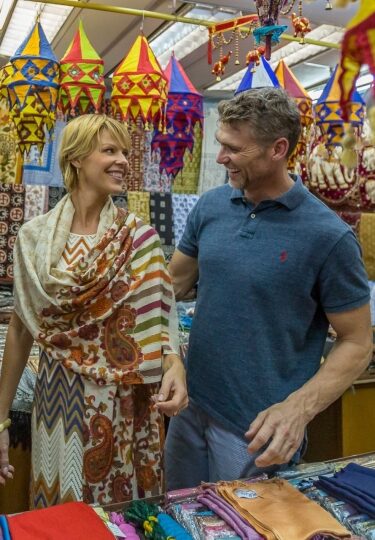When it comes to commerce, Singaporeans have it down to an art. Locals in the Lion City absolutely love to shop, as is evidenced by the blend of both ultra-high-end luxury shopping centers and more traditional markets.
Whether you’re looking for bespoke fashions by Singapore’s hottest designers, beautiful batik prints, or small Singapore souvenirs to take for loved ones back home, you’ll find it here.
Here are some of the best things to buy in Singapore.
Merlion Souvenirs
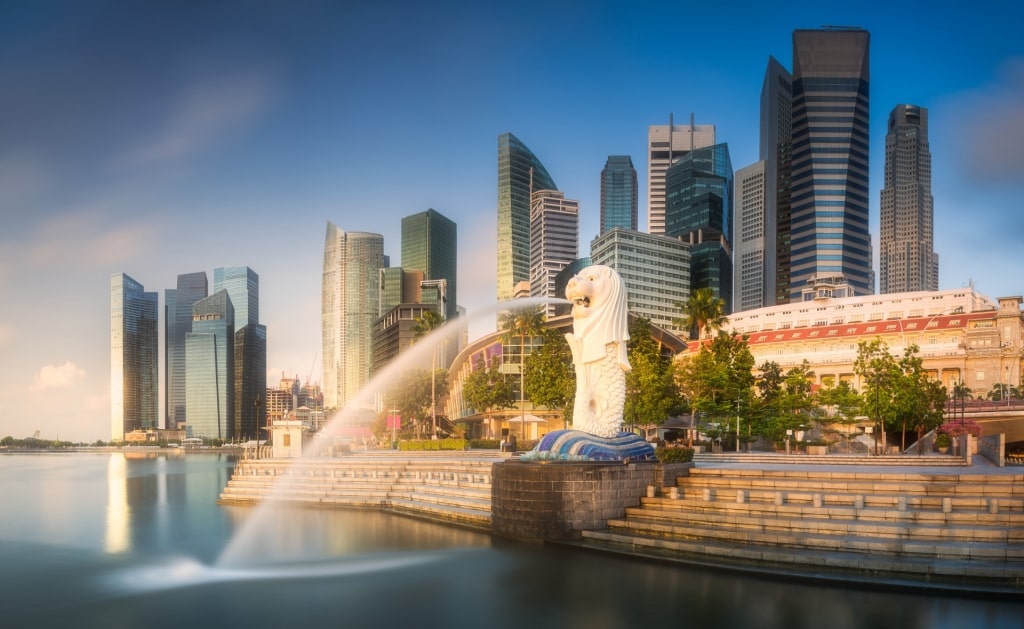
Merlion
If you find yourself wondering what that peculiar creature that appears in statues and logos around the city-state is, wonder no more. The “Merlion” is pretty much what it sounds like: think of a mermaid, but with the head of a lion in lieu of a maiden.
Originally designed in the 1960s by Alec Fraser-Brunner, this mythical beast is the mascot of Singapore and appears just about everywhere, from sporting events to literature to art.
Centuries before it was the ultra-modern hub it is today, this area was known as “Temasek,” or “sea town” in Javanese, for the number of fishing villages clustered around the coastline. Meanwhile, “Singapura,” the name from which Singapore was later derived, literally translates as “Lion City.”
The Merlion nods to both elements, which is part of why it makes such a great trinket to remember your journey here. Shoppers will find merch emblazoned with the Merlion in any of the major commercial districts.
DIY Singapore Slings
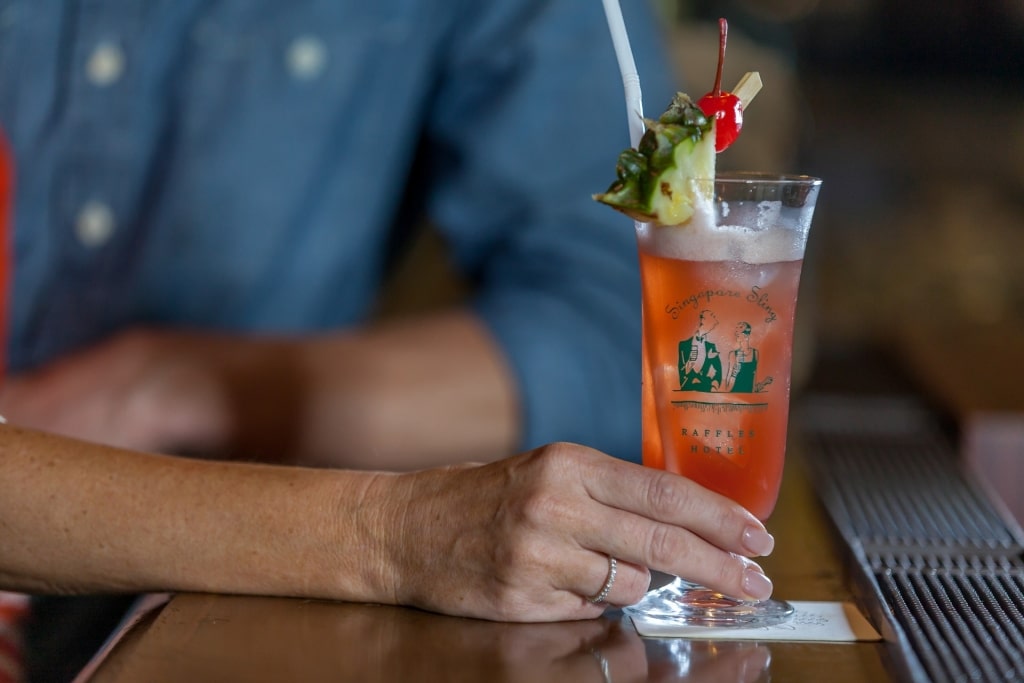
Singapore Sling
Along with the Mai Tai, the Jungle Bird, and the Zombie, the Singapore Sling is one of the most iconic tiki drinks.
In essence, it’s a gin-based tipple made with curaçao, cherry liqueur, and Bénédictine, along with pineapple juice, a squeeze of lime, and a dash of grenadine for a blush-pink hue.
Like other canonical tiki cocktails, it’s both extremely strong and on the sweet side, although skilled mixologists are careful to balance out the flavor profile.
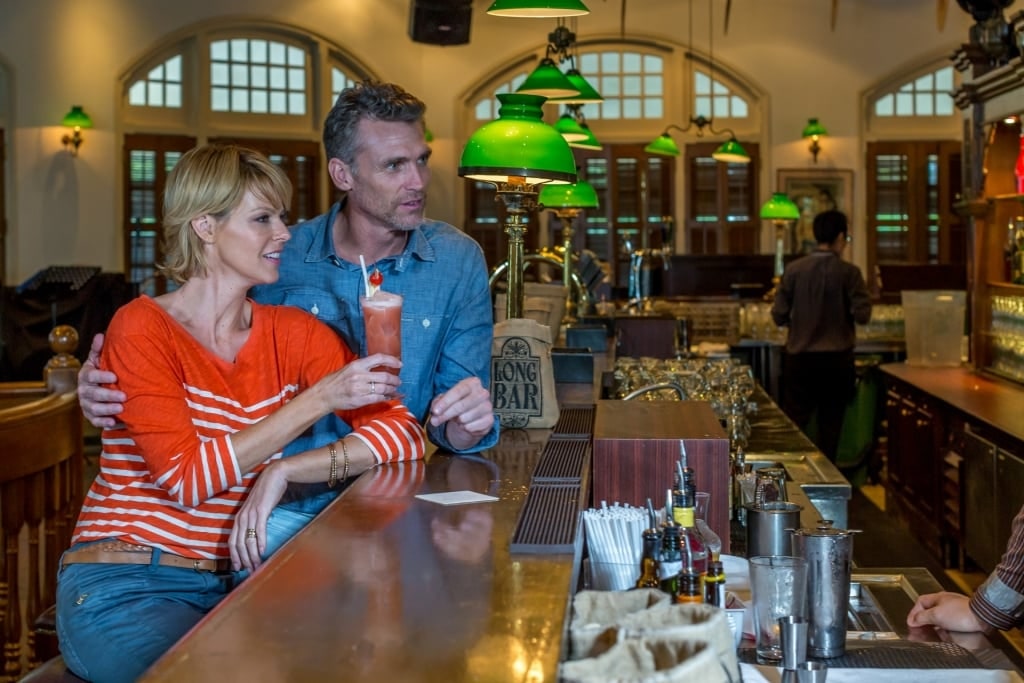
Raffles Hotel
As with many classic cocktails, there is some dispute swirling around the origins of the Singapore Sling, however, the most popular and widely disseminated tale is that Ngiam Tong Boon, a bartender at the Singaporean landmark Raffles Hotel, invented it in 1915.
You can pick up a bottle of the hotel’s own bottled mix, then simply add fresh fruit juices to impress guests at home.
Malay Jewelry
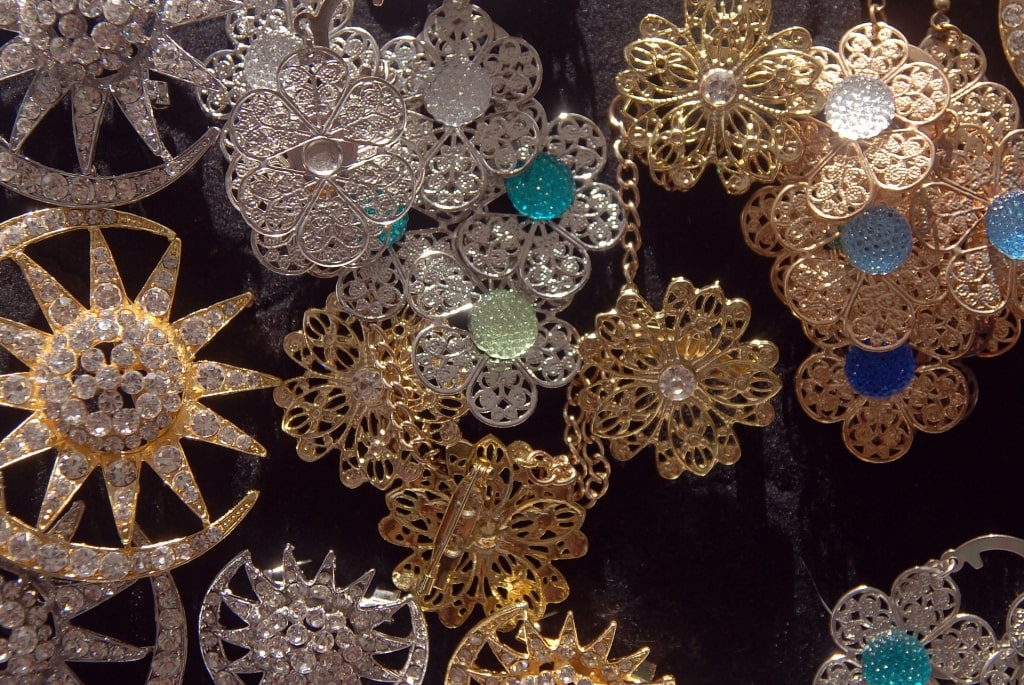
Malay jewelry
During the 1950s and ‘60s, glamorous Singaporeans loved to dress up with eye-catching gold bangles, often studded with rose-cut diamonds and other precious jewels. These elaborate statement pieces typically feature painstakingly intricate metalwork by master craftsmen.
Nowadays, genuine vintage Peranakan intan jewelry is very much back in vogue, as are more contemporary accessories by younger Singaporean and Malaysian designers.
Reputable antique dealers throughout the Lion City should be able to locate original specimens. High-quality pieces often go for a considerable fortune, but their appeal is truly timeless.
For shoppers on the hunt for something a little bit more understated and minimalist, The Straits Finery is perfect for effortlessly classy bracelets, necklaces, and earrings.
Founders Foo Chia Chern and Amira Yahaya drew inspiration from their own family heirlooms, then added their own distinctive creative slant on them.
Read: Romantic Things to Do in Singapore for Couples
Bakkwa
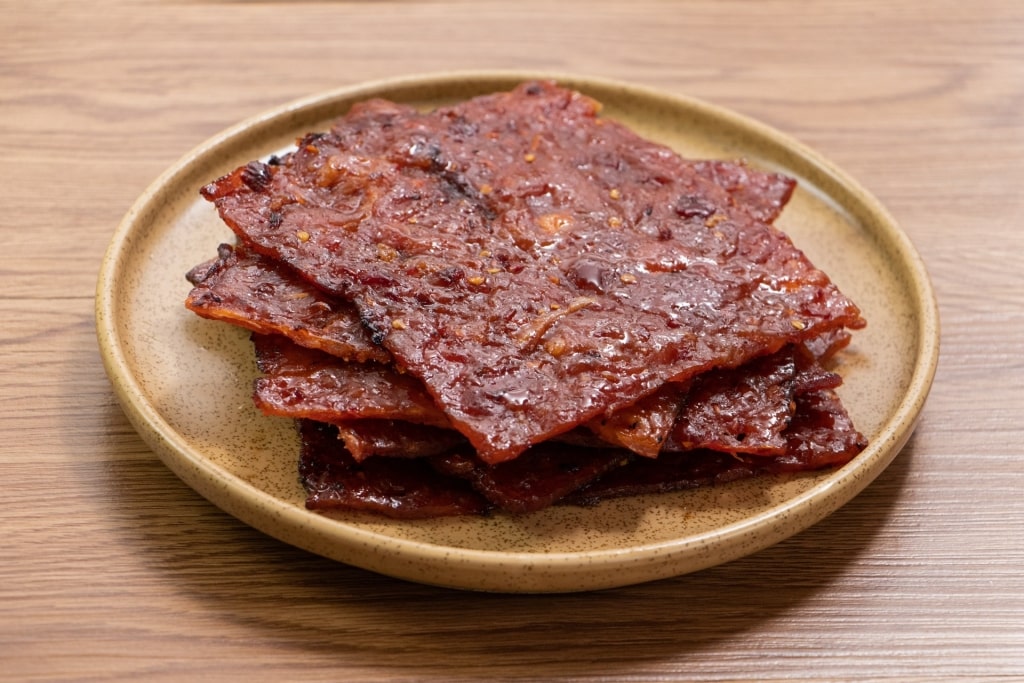
Bakkwa
Travelers who have never had the chance to try this utterly addictive jerky are in for a real treat. Bakkwa, sometimes called rougan, has its roots in mainland China, where it was originally used as a method for preserving meat for long journeys or through the winter.
Traditionally, it consisted of beef, pork, or lamb cured with soy sauce, sugar, salt, and spices, then air-dried until firm but still pliable.
Today, bakkwa is a popular snack throughout Malaysia and Singapore. The meat—usually pork nowadays, although it still varies—takes on a vivid reddish hue and a glossy lacquered finish from the caramelized sugars.
The best vendors throughout Singapore are revered and the beautifully packaged offerings available at high-end shopping centers make for terrific gifts.
Durian Candies
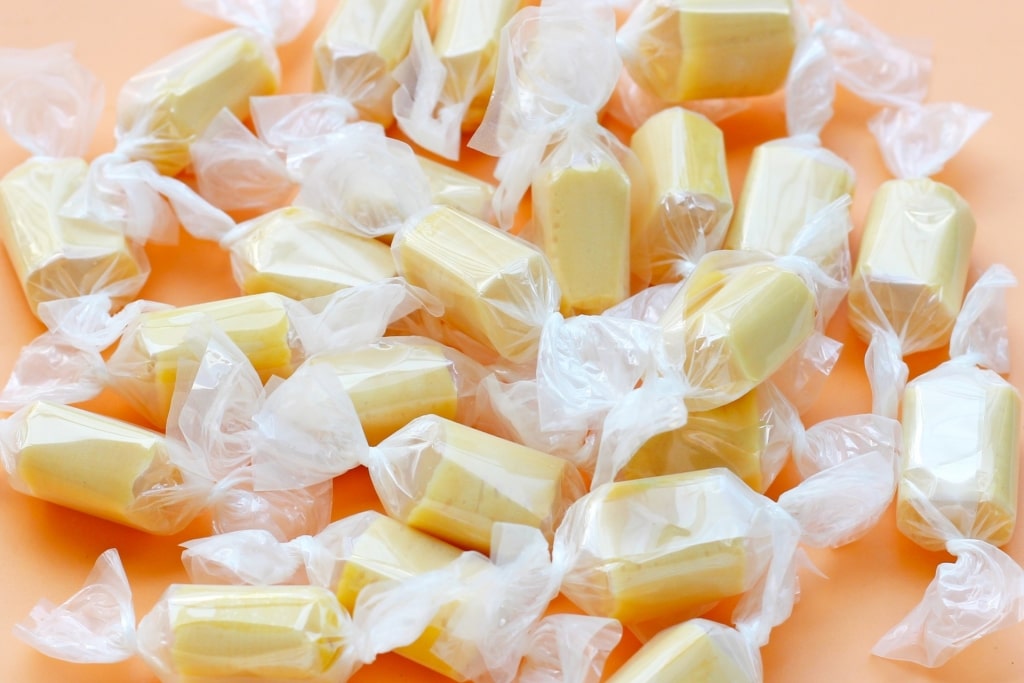
Durian candies
The King of Fruits, as it is often called, may have a bit of a mixed reputation, as evidenced by the signs on the Singaporean MRT (the spotless subway) clearly forbidding people from carrying them onboard.
To the uninitiated, the pungent aroma of a freshly cut durian can be overpowering; comparisons to sweaty socks and rotting garbage abound. But much like an aged Stilton, this delicacy is delicious if you can just get past the smell.
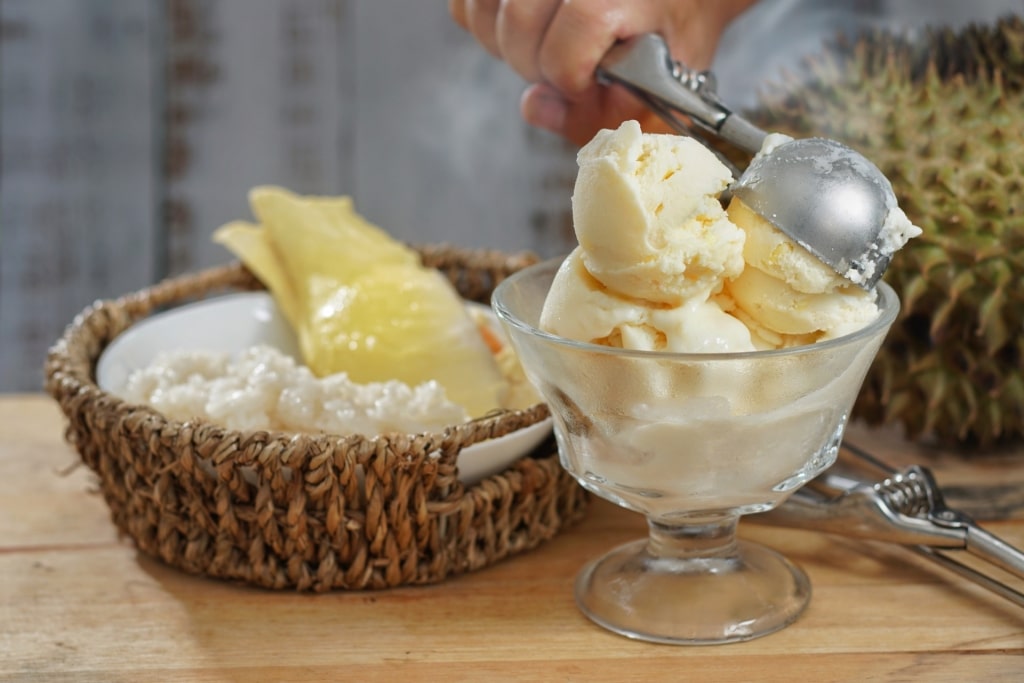
Durian ice cream
Luckily, foodstuffs like durian ice cream, durian chips, and durian candies are a little less stinky. They also make for tasty Singapore souvenirs to bring back home, too. Just wait until you’re out of a crowded space to enjoy them.
Look for your durian products at Chinatown Street Market. Expect to find everything from touristy trinkets to beautiful calligraphy, all interspersed with plenty of places to fuel up on dim sum and other eats.
Be sure to check out Tanjong Pagar Plaza, a dense cluster of more than 100 shops, and Ann Siang Road, which has a number of boutique clothing stores and some highly Instagrammable architecture.
Read: Best Things to Do in Singapore With Kids
Kaya Jam
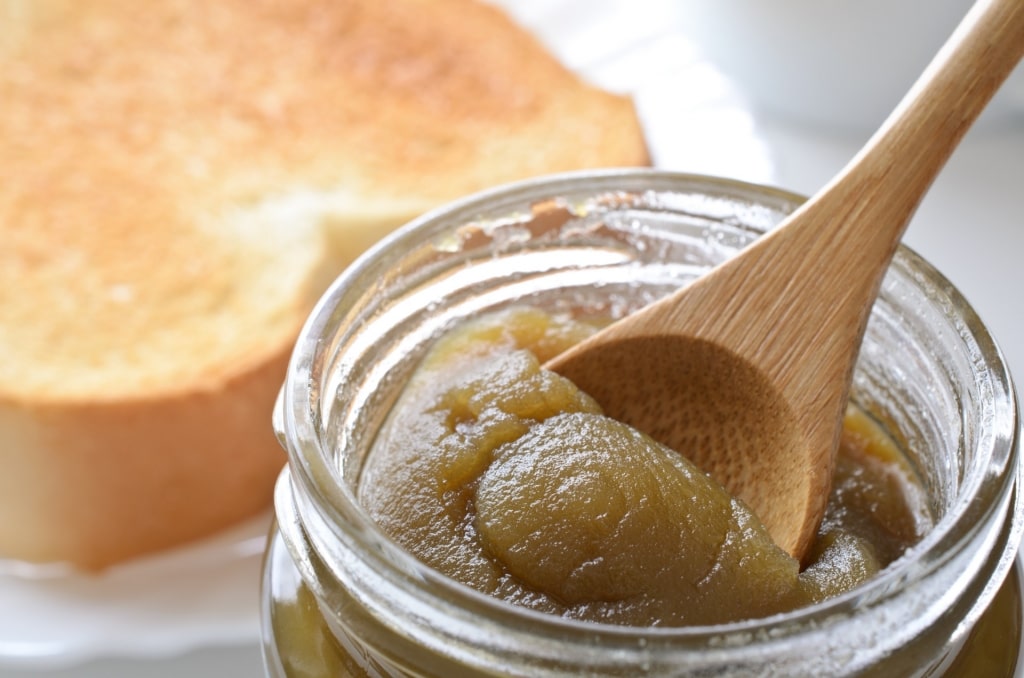
Kaya jam
Kaya is something like the coconut milk answer to dulce de leche. It consists of coconut milk cooked down very slowly with sugar until caramelized, then thickened with eggs.
Pandan, a leaf with a haunting, intense fragrance that hovers somewhere between vanilla bean and pine, is often used to flavor it and add a pretty, pale green hue.
You could make kaya yourself at home if you’re feeling ambitious, but a jar of this delicious sweet makes for a perfect gift or souvenir.
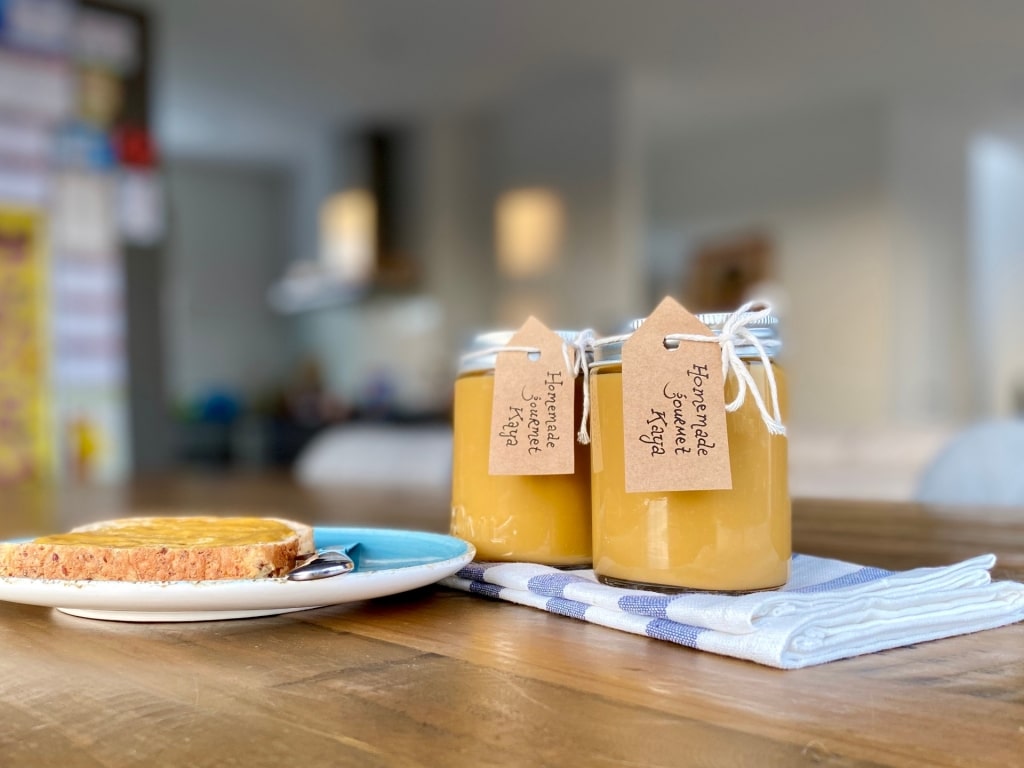
Kaya jam
If you pay a visit to a kopitiam, a traditional coffee shop, be sure to start your morning off with an order of kaya toast.
The combination of fluffy white bread, a generous smear of butter or margarine, and sweet kaya is almost impossibly satisfying. The best way to enjoy it is with a milky cup of coffee or strong tea, as well as soft-boiled eggs for dunking.
Laksa Spice Paste
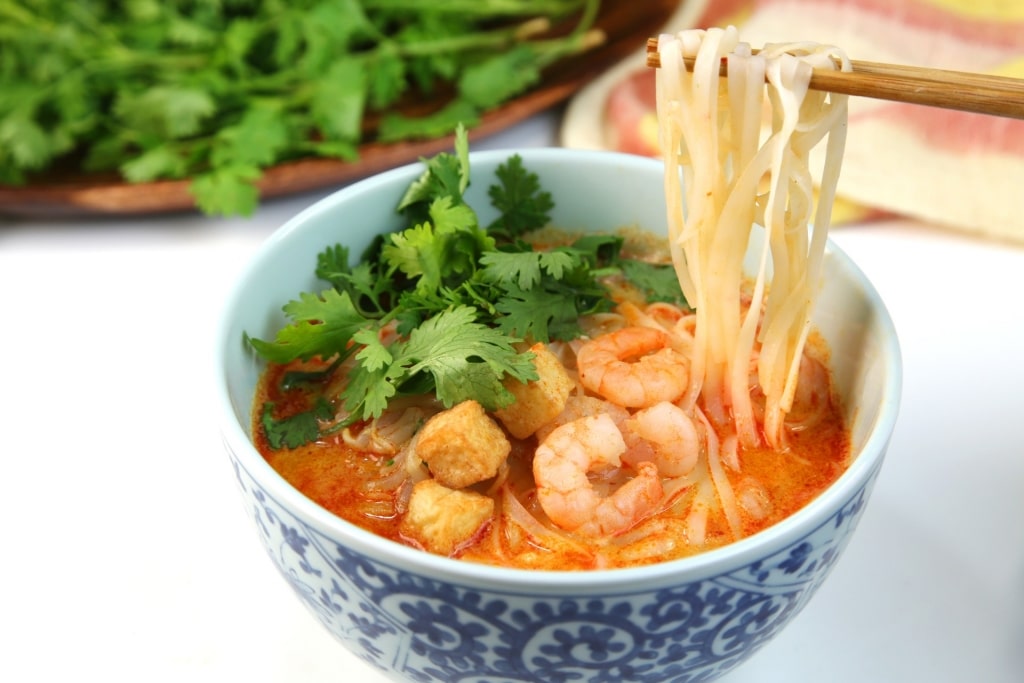
Laksa noodles
A steaming bowl of laksa might be the ultimate comfort food in Singapore. It’s often said that Singaporeans live to eat, and this dish of toothsome noodles swimming in a creamy, intricately spiced coconut broth is one that the Lion City simply cannot live without.
Much like Singapore itself, laksa is a dish with roots in a number of different cultures. Its origins are Malaysian, but regional variations are enjoyed in parts of Indonesia as well as throughout Singapore.
What gives laksa its potent, complex flavor is a spice paste made with dried shrimp, candlenuts, galangal, lemongrass, and chiles, among other ingredients.
Although there’s no substitute for freshly made laksa from a hawker center in Singapore, travelers can approximate the experience by picking up a jar to take home.
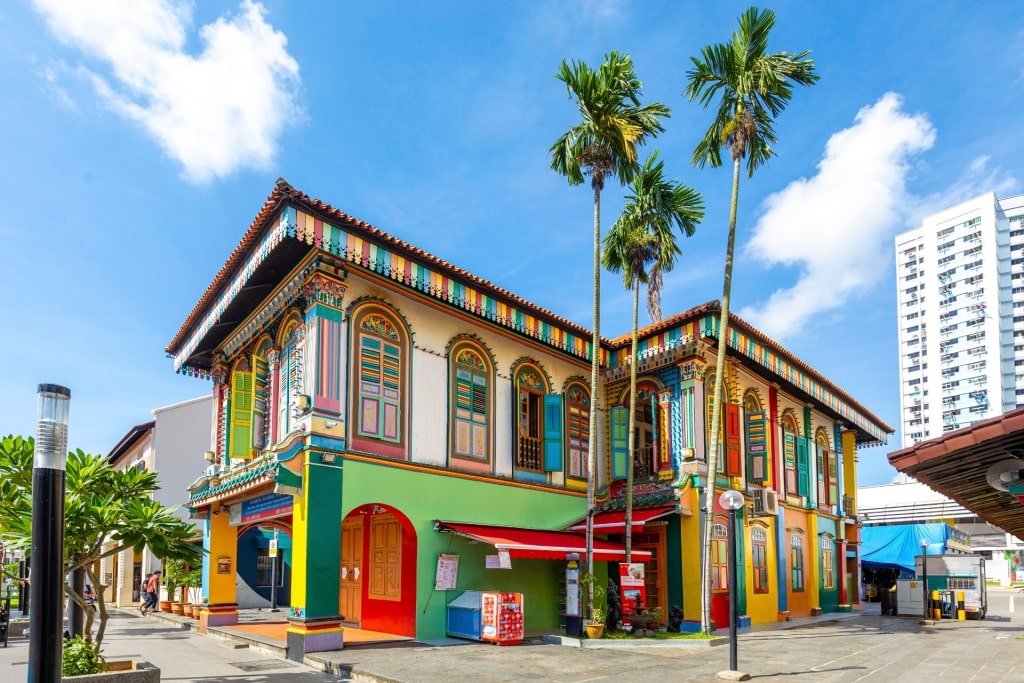
Little India
Singapore’s Little India is a treasure trove for anyone looking to stock up on fragrant spices, as well as silks and saris. With its colorful historic shophouses and lively atmosphere, this cultural enclave is one of the best spots to browse.
Read: Three Days in Singapore
Fashion by Singaporean Designers
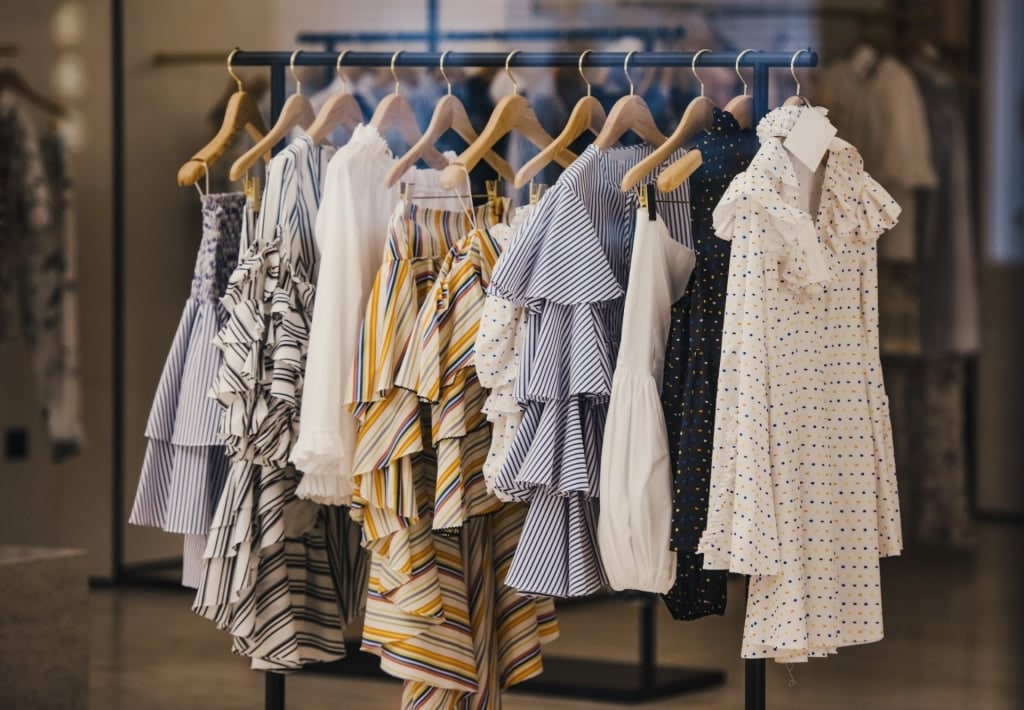
Clothes
A generation ago, fashionistas throughout Southeast Asia looked to the runways in Paris, Milan, and New York when stocking up their closets.
While these days you’ll still find plenty of designer wear from luxury Western brands, some of the most coveted garments are those designed right here in Singapore.
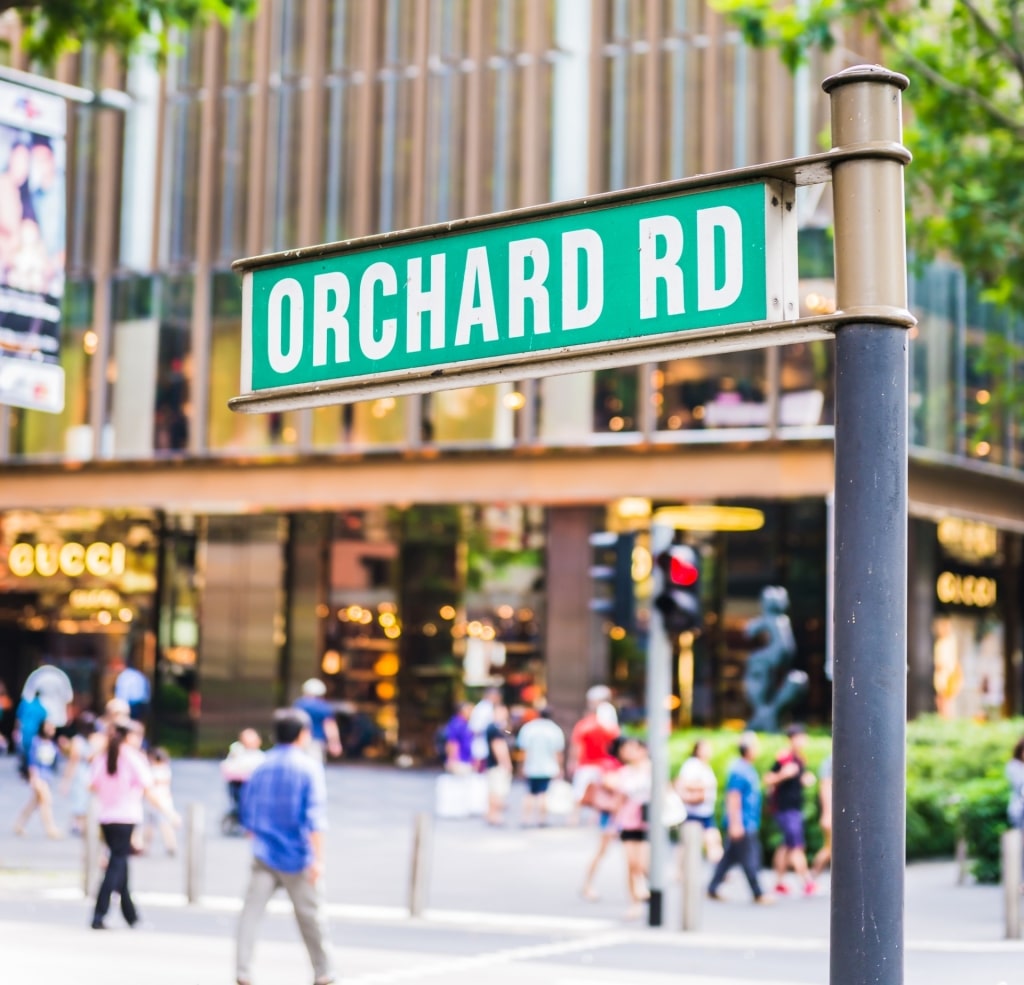
Orchard Road
The place to shop for fashion is Orchard Road. This broad, swanky boulevard is the Lion City’s Champs-Élysées, a haven of commerce and dining with a truly head-spinning array of options.
It’s also by far one of the ritziest parts of town, which makes people-watching especially fun here. Expect to see Singaporean and international A-listers dressed to the nines while perusing the designer wares.
For cutting-edge womenswear, Mae Pang is one of the top labels to watch. Collections here range from wildly imaginative, space-age fashions with silhouettes and fabrics that would look right at home in Lady Gaga’s wardrobe, to more easily wearable street styles.
Another top local design label is Ong Shunmugam. Founded by Priscilla Shunmugam, the brand draws inspiration from traditional styles of garments all over Asia, while giving them a swish, modern update.
Tiger Balm
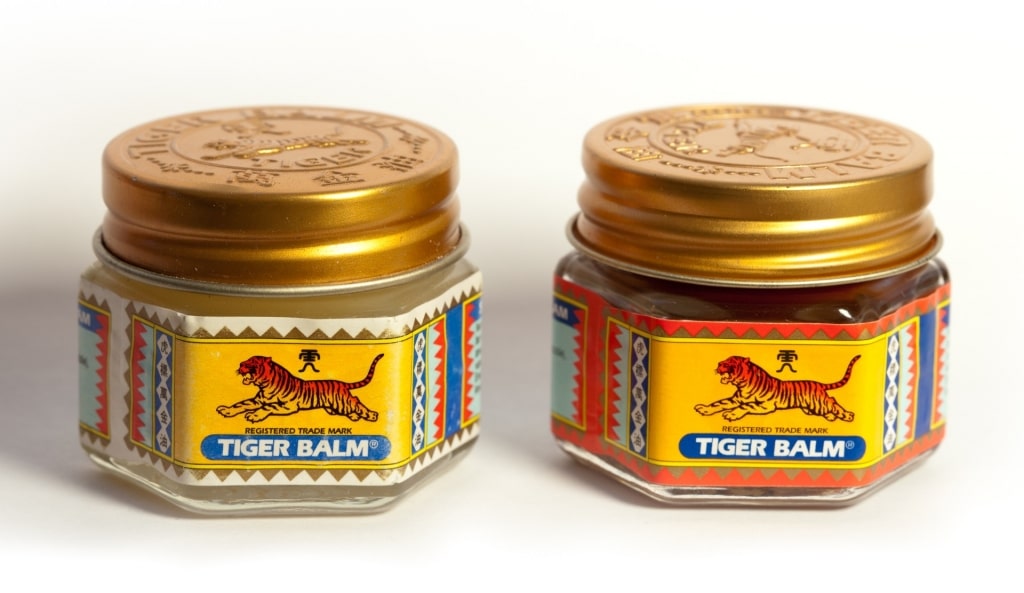
Tiger Balm Photo by Steffen Buus Kristensen on Wikimedia Commons, licensed under CC BY-SA 3.0
As anyone who has spent time in Southeast Asia can attest, Tiger Balm is a real wonder when it comes to soothing muscular aches and pains, or clearing blocked sinuses.
Absolutely ubiquitous, this anti-inflammatory uses a combination of camphor, cajuput oil, menthol, and clove oil, along with other ingredients, to temporarily provide relief.
You can rub it on your temples or forehead to ease a headache or rub it on your back, chest, or any strained or pulled muscles. Pick up a few pots of Tiger Balm to take home; you’ll always find a use for it.
Peranakan Tiles
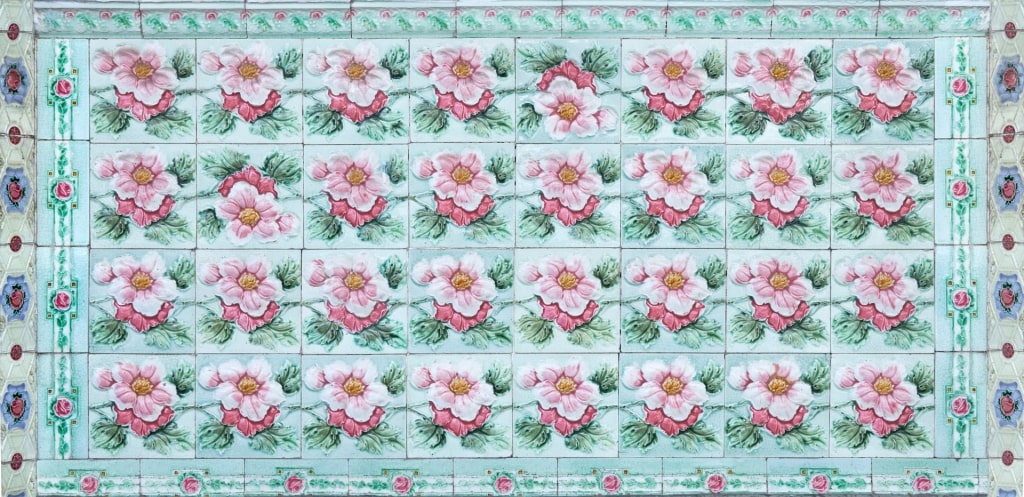
Peranakan tiles
The Peranakans, also known as Straits Chinese or Baba-Nyonya, were a class of sea-faring merchants who left their mark on Southeast Asia from Malacca to Phuket.
Their cultural influence can still be seen all over Singapore, particularly in their lavishly decorated homes and shophouses. While some of these have been demolished, beautifully preserved examples can be found all over the Lion City, each adorned with tiles.
For a one-of-a-kind souvenir, it’s well worth tracking down an antiques dealer who carries vintage Peranakan tiles, many of which are handpainted. They make for gorgeous home decorations or mementos. There are also a small number of artisans still making modern-day versions in the traditional style.
Gold-Plated Orchids & Orchid Perfumes
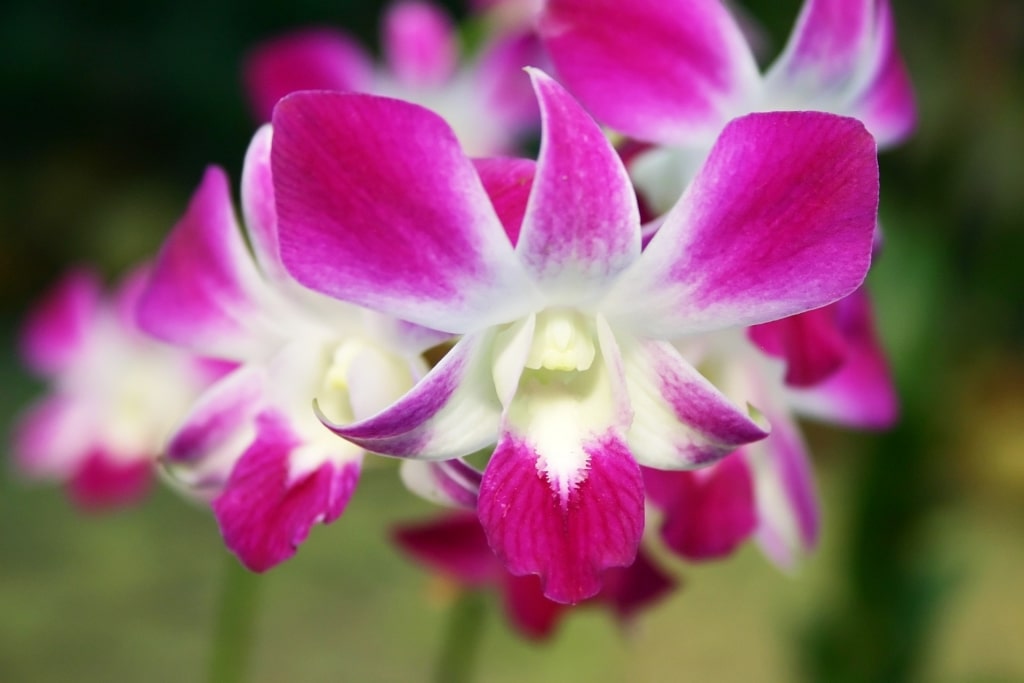
Orchid
Orchids have an especially hefty historical and cultural significance for Singaporeans. The Vanda Miss Joaquim, an especially striking, delicate variety of orchid, has been the official national flower for around four decades.
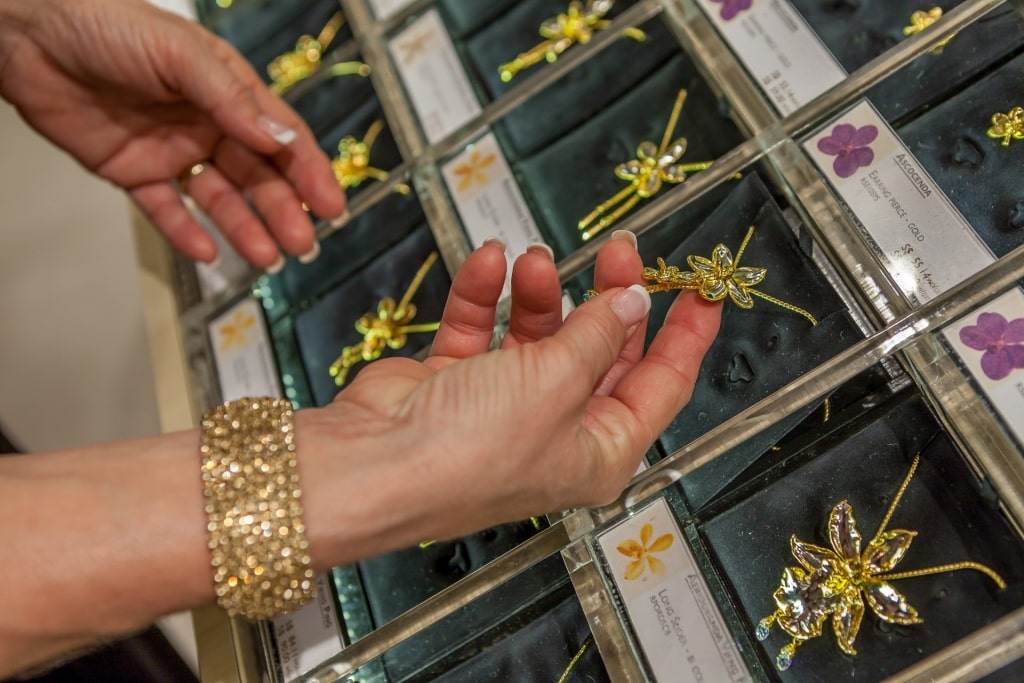
Gold-plated orchids
While orchids themselves may be famously delicate and ephemeral, it’s still possible for visitors to take a memento of these stunning blooms home. A number of fine jewelers in the Lion City have taken to preserving real orchid blossoms in 24K gold to form eye-catching pendants, broaches, and other accessories.
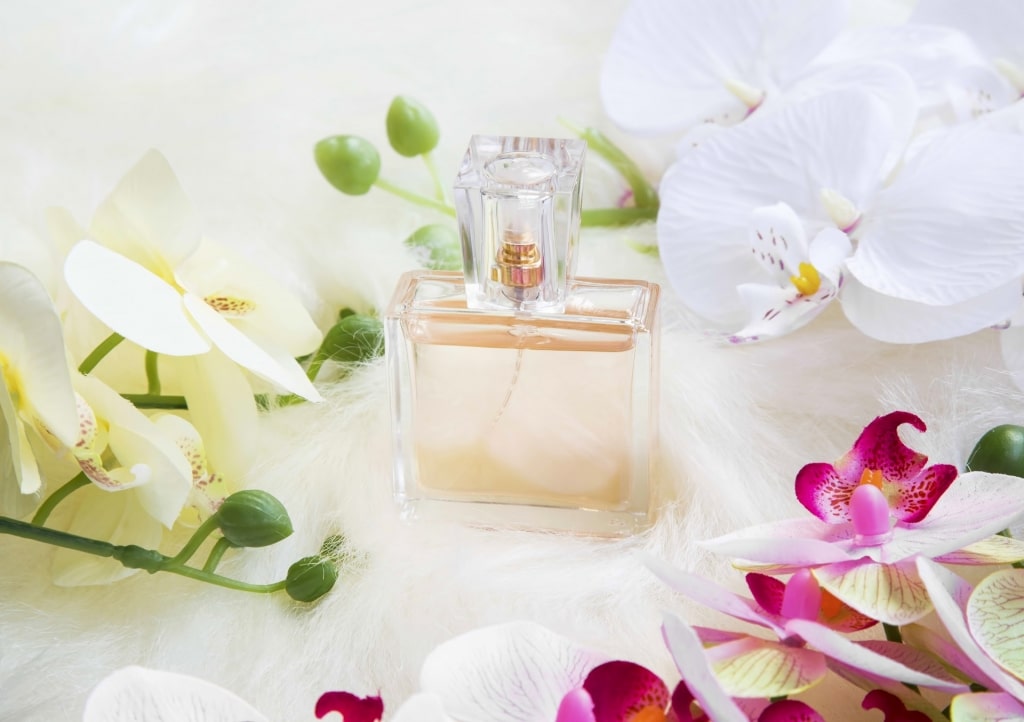
Orchid perfume
Several perfumeries also capture the slightly spicy, invigorating scent of Singaporean orchids in custom fragrances.
Textiles
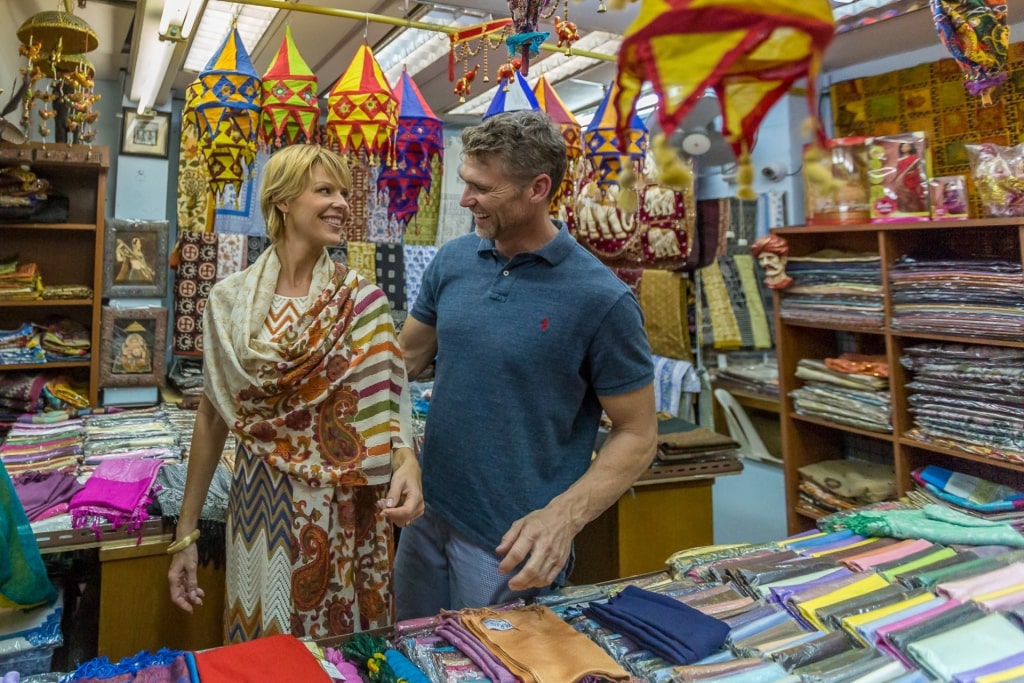
Textiles
From fine silks to gorgeous batik prints, there are all sorts of top-quality textiles and garments to be purchased in Singapore. Note that quality varies widely and often corresponds to price—mass-produced batik fabrics can never quite match the visual allure of handcrafted ones and cheaper silks will fade with time.
Take the time to seek out reputable vendors and, if possible, be willing to shell out a few extra Singaporean dollars for a souvenir that will still shimmer for years to come.
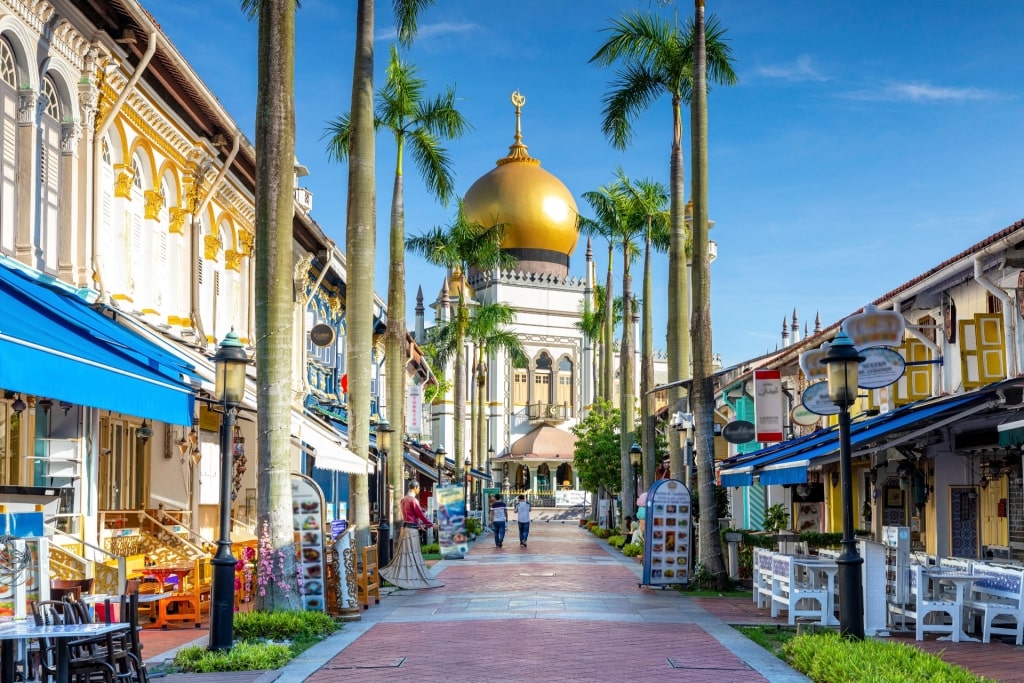
Haji Lane
Haji Lane, a vibrant corner of Kampong Glam, is one of the best places to shop for textiles. Like Chinatown, the neighborhood is a mixture of traditional shophouses and hipster-friendly cafés and eateries.
There’s always something going on in the surrounding network of streets—not to mention some great deals for savvy shoppers.
Read: When Is the Best Time to Visit Singapore?
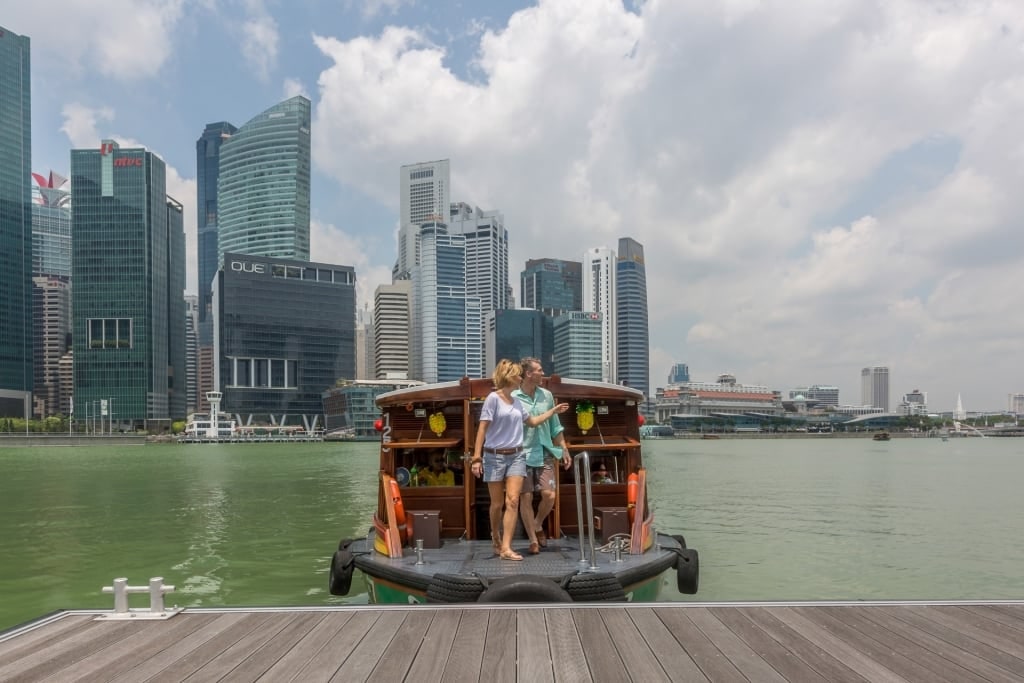
Singapore River
The Lion City is nothing short of electric and one of the best ways to discover its charms is on a cruise throughout Southeast Asia. Browse our Singapore cruises and book your next voyage today.
